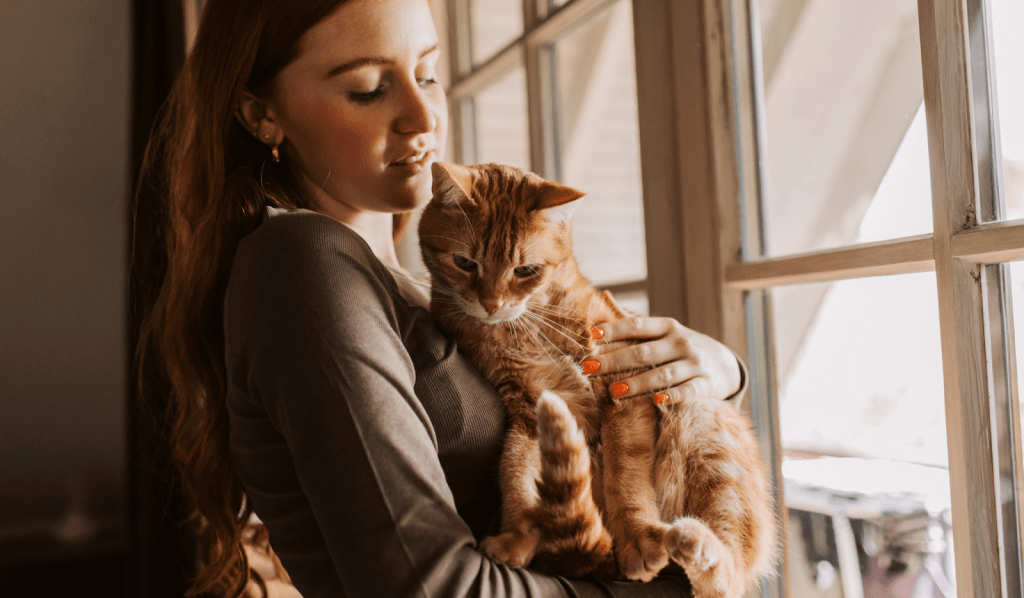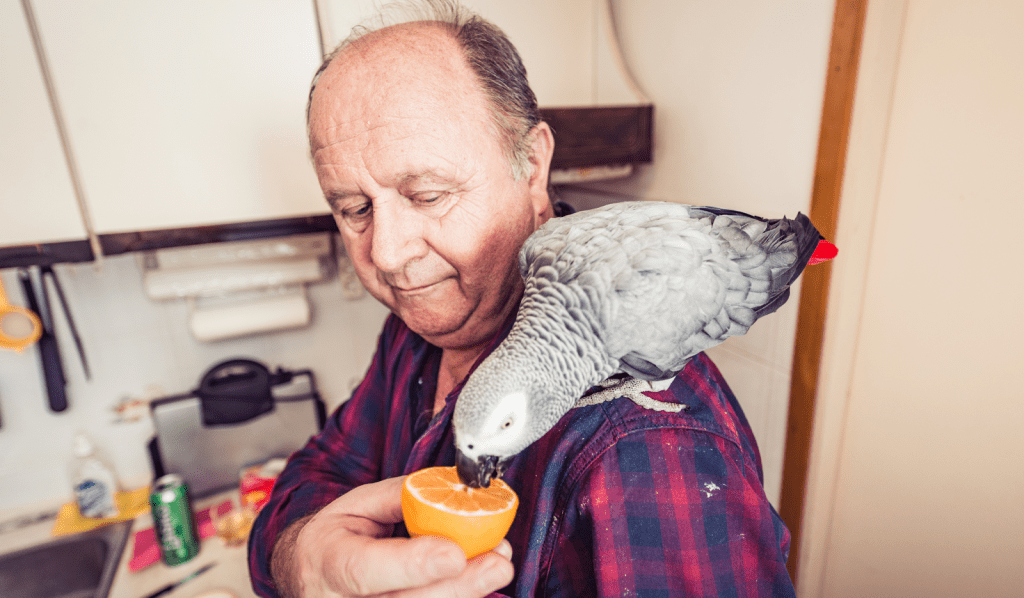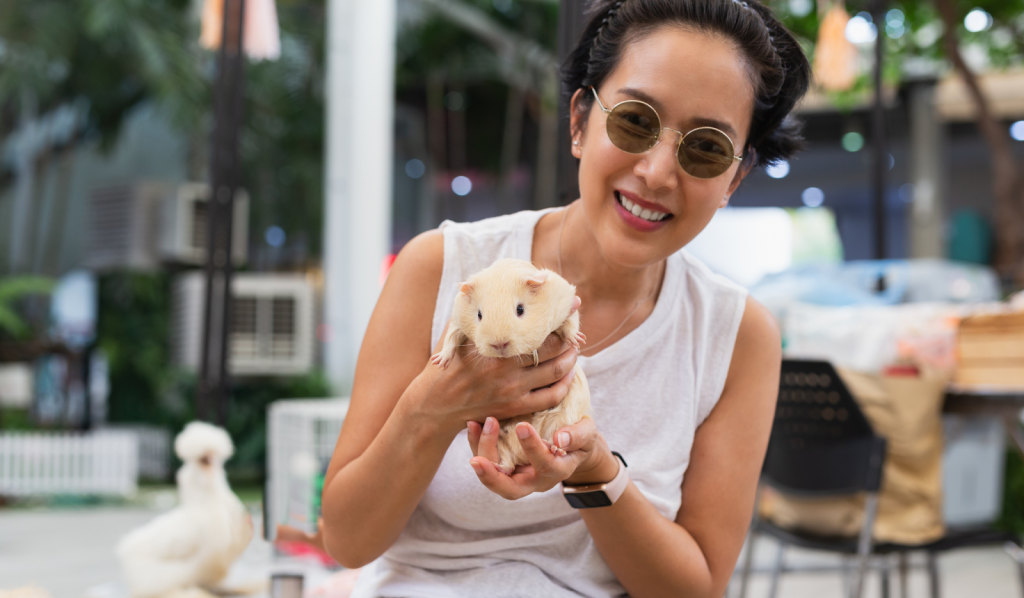Emotional Support Animals are becoming more widely recognized as valuable companions for people managing stress, anxiety, depression, and other mental health challenges. Their presence provides comfort, routine, and a sense of connection that supports emotional well-being in everyday life. As awareness grows, more individuals are exploring how ESAs can play a role in healing and balance, often with life-changing results.
Dogs are still the most common image when people hear the term ESA, but they are far from the only option. Cats, rabbits, birds, guinea pigs, and even miniature horses are capable of offering profound emotional benefits. Under the Fair Housing Act and other ESA protections, these animals can also qualify for recognition, provided the owner has proper documentation. By looking beyond dogs, you can discover overlooked companions with unique qualities that may be a better match for your lifestyle and emotional needs.
Key Takeaways:
- Dogs are not the only animals that qualify as emotional support animals. Cats, rabbits, birds, guinea pigs, and even miniature horses can also provide meaningful comfort.
- To be officially recognized as an ESA, owners need documentation from a licensed mental health professional, but the animal itself does not require special training.
- Each type of animal offers unique forms of support, such as the calming purr of a cat, the gentle presence of a rabbit, or the lively interaction of a bird.
- ESA protections are covered mainly under the Fair Housing Act, which requires landlords to make accommodations even in housing with “no pets” policies, though ESAs do not have the same public access rights as service animals.
- Caring for an ESA successfully involves creating a safe environment, maintaining daily routines, planning for travel, and seeking professional guidance when needed.
What Makes an Animal Eligible as an ESA?
An Emotional Support Animal is not the same as a service animal, and it is important to understand the difference. Service animals are trained to perform specific tasks for individuals with physical or psychiatric disabilities, such as guiding someone with vision loss or interrupting harmful behaviors during a panic attack. Emotional Support Animals, by contrast, do not require specialized training. Their role is to provide comfort, stability, and companionship that directly supports their owner’s mental health.
For an animal to qualify as an ESA, the owner must have a letter from a licensed mental health professional confirming the need for emotional support. Beyond documentation, the qualities that make an animal effective in this role often include a calm temperament, a strong bond with humans, and care needs that can be reasonably managed by the individual. These traits ensure the animal can provide consistent comfort without adding stress to the owner’s daily life.
Cats as Emotional Support Animals

Cats make excellent emotional support animals for people who prefer a companion that is both affectionate and independent. Their quiet presence, soothing purr, and tendency to seek out closeness can create a calming environment, especially for those coping with stress, anxiety, or loneliness. Many owners find that simply stroking a cat or listening to its rhythmic purring lowers their heart rate and helps them feel more grounded.
Because cats are generally low-maintenance compared to dogs, they are especially well suited to individuals living in apartments or those with limited energy for daily exercise routines. They thrive in indoor environments, adapt easily to smaller spaces, and provide reliable companionship without requiring constant attention. For people who value emotional support but also appreciate a pet that respects personal space, cats can be an ideal ESA choice.
- Calming influence: Their soothing purr and gentle presence help reduce stress and promote relaxation.
- Low maintenance: Cats are easier to care for than dogs, making them ideal for busy or low-energy owners.
- Adaptability: Well suited for small apartments and indoor living.
- Balanced companionship: Affectionate yet independent, they offer closeness without being overwhelming.
- Who it’s for: Individuals seeking a comforting, space-friendly ESA that provides support without demanding constant attention.
Rabbits as Emotional Support Animals

Rabbits may not be the first animal you think of for emotional support, but their gentle nature and comforting presence make them surprisingly effective companions. Their soft fur and quiet demeanor create a sense of calm that can ease feelings of anxiety or stress. Many owners describe the act of holding or petting a rabbit as deeply soothing, offering a kind of tactile comfort that helps them relax and feel at peace.
Rabbits are also well suited for people who live in smaller spaces or prefer a quieter household. They do not require daily walks, and with proper litter training they can adapt easily to indoor living. Their playful yet calm personalities encourage nurturing routines, which can be particularly helpful for individuals who benefit from a sense of structure in their day. For those seeking an ESA that is affectionate but not overwhelming, rabbits provide a unique and gentle form of emotional support.
- Calming presence: Their soft fur and quiet demeanor help reduce anxiety and promote relaxation.
- Low noise and space needs: Well suited for apartments or quiet households.
- Routine building: Their care encourages structure, which can support mental and emotional stability.
- Gentle companionship: Playful yet calm, they provide affection without being demanding.
- Who it’s for: Individuals who want a quiet, space-friendly ESA that provides tactile comfort and nurturing routines without requiring daily walks.
Birds as Emotional Support Animals

Birds bring a vibrant and uplifting energy that can brighten even the most difficult days. Their songs, colors, and playful behaviors create an engaging atmosphere that helps reduce feelings of isolation. Certain species, such as parrots or cockatiels, thrive on interaction and can even mimic human speech, offering a sense of companionship that feels personal and lively. For individuals struggling with loneliness, this interactive bond can be especially comforting.
Caring for a bird also provides a steady routine that encourages responsibility and mindfulness. From feeding to cage cleaning, these daily tasks can give structure to a person’s day and promote emotional balance. However, birds do come with unique considerations: some species are noisy, others require significant attention, and many have long lifespans that demand a long-term commitment. For people who are drawn to their engaging nature and who enjoy consistent interaction, birds can be rewarding and supportive ESAs.
- Uplifting presence: Their songs, colors, and playful behaviors create a lively and positive environment.
- Interactive bond: Parrots, cockatiels, and similar species can mimic speech and thrive on human interaction.
- Routine and structure: Daily care tasks promote responsibility and mindfulness.
- Unique considerations: Noise, attention needs, and long lifespans require thoughtful commitment.
- Who it’s for: Individuals who enjoy active, engaging companionship and are prepared for the long-term care birds often require.
Guinea Pigs and Other Small Rodents as Emotional Support Animals

Guinea pigs, hamsters, and similar small pets may be tiny in size, but they offer a surprising amount of emotional comfort. Their gentle nature and soft vocalizations can create a soothing presence, while their small size makes them easy to care for in apartments or limited living spaces. For many people, simply watching a guinea pig explore or listening to its quiet squeaks provides a sense of calm and distraction from daily stress.
These animals are also a wonderful option for individuals who want companionship without the demands of larger pets. They require regular feeding, cage cleaning, and gentle interaction, but their overall care needs are manageable and not overwhelming. Because guinea pigs are social by nature, they often thrive when kept in pairs, which can further enhance their ability to provide emotional support. For children, families, or adults seeking a low-maintenance yet comforting companion, small rodents can be an excellent ESA choice.
- Gentle nature: Their quiet personalities and soft sounds create a calming presence.
- Space-friendly: Small size makes them ideal for apartments and limited living areas.
- Manageable care: Feeding, cleaning, and interaction needs are simple and not overwhelming.
- Social benefits: Guinea pigs thrive in pairs, adding to their emotional support value.
- Who it’s for: Children, families, or adults who want a low-maintenance ESA that offers comfort in small spaces.
Miniature Horses as Uncommon but Recognized ESAs

Miniature horses may seem like an unlikely choice for an emotional support animal, yet they bring unique qualities that set them apart. Known for their intelligence and strong emotional sensitivity, these animals form deep bonds with their owners and can offer steady, grounding support. Their long lifespan, often extending more than twenty years, allows them to provide companionship over a much longer period than most traditional pets.
In some cases, miniature horses are even classified closer to service animals due to their trainability and ability to assist people with specific needs. However, their suitability as ESAs depends heavily on lifestyle and environment. They require ample outdoor space, making them better suited for rural or suburban households. Owners must also consider the higher costs of care, including shelter, feed, and veterinary needs. For those who can provide the proper resources, miniature horses offer a rare and deeply rewarding form of emotional support.
- Intelligence and sensitivity: They are highly perceptive and form deep emotional bonds with their owners.
- Long lifespan: Often live more than twenty years, providing long-term companionship.
- Service animal overlap: Sometimes recognized closer to service animals because of their trainability.
- Space requirements: Need ample outdoor areas, making them better for rural or suburban households.
- Who it’s for: Individuals with space, resources, and a desire for a rare but profoundly supportive ESA.
Other Animals That Can Serve as ESAs
While cats, rabbits, birds, guinea pigs, and miniature horses are among the most recognized non-dog ESAs, many other animals can provide meaningful emotional support when matched with the right owner. The key is finding a companion that offers comfort, fits your lifestyle, and can reasonably be cared for in your environment. Some additional options include:
- Ferrets: Curious and playful, ferrets can be highly interactive and bring joy to owners who enjoy energetic pets.
- Reptiles (turtles, lizards, snakes): Their quiet presence and low-maintenance care needs can create a calming environment, particularly for people who prefer animals with minimal demands.
- Fish: Watching fish swim in an aquarium has been shown to reduce stress and lower blood pressure, making them excellent for individuals who want a soothing, low-interaction ESA.
- Goats or pigs: In rural or suburban settings, these animals can provide strong companionship and routine, though they require significant space and proper facilities.
- Unusual companions: Animals such as hedgehogs or sugar gliders are less common, but when properly cared for, they can form close bonds and provide comfort.
No matter the species, the most important factor is that the animal genuinely helps its owner feel calmer, safer, and more emotionally balanced.
Choosing the Right ESA for You
Selecting an emotional support animal is a personal decision that depends on both your lifestyle and your emotional needs. While every species can offer comfort in its own way, some animals are better suited to certain situations than others. Considering the following factors can help you make the right choice:
- Living environment: Apartments and smaller spaces may be more compatible with cats, rabbits, guinea pigs, or birds, while larger homes with yards are better suited for dogs or even miniature horses.
- Allergies and sensitivities: If you or someone in your household is allergic to fur or dander, hypoallergenic animals or alternatives like birds may be a better fit.
- Time commitment and lifestyle: Dogs and birds often require more interaction and care, while cats and rabbits tend to be more independent. Consider how much time and energy you can consistently dedicate.
- Emotional needs: Think about the kind of support you’re looking for. Do you want active companionship, playful interaction, or a calm presence that offers quiet comfort? Different animals provide different kinds of emotional connection.
By weighing these factors, you can find an ESA that not only meets your therapeutic needs but also fits seamlessly into your daily life.
ESA Laws and Housing Rights for Non-Dog ESAs
Emotional support animals, whether they are cats, rabbits, birds, or even miniature horses, are legally recognized under certain housing protections. These laws ensure that individuals who rely on ESAs are not unfairly denied the comfort and stability these animals provide.
- Fair Housing Act (FHA): This federal law protects the rights of people with ESAs to live with their animals, even in housing with “no pets” policies. Landlords must make reasonable accommodations as long as the ESA does not pose a direct threat or cause significant property damage.
- Difference from service animals: Under the Americans with Disabilities Act (ADA), only dogs and miniature horses are recognized as service animals. Unlike service animals, ESAs do not have public access rights in places such as restaurants, stores, or airplanes. Their protections are focused mainly on housing.
- Landlord responsibilities: Property owners must evaluate ESA requests fairly, even when the animal is not a dog. Denials must be based on valid concerns, such as health risks or unreasonable financial burdens, rather than species preference.
- Documentation: To qualify for housing protections, ESA owners need a letter from a licensed mental health provider confirming the therapeutic need for the animal. Online certifications or registrations without professional evaluation are not legally sufficient.
These protections ensure that individuals can choose the type of animal that best supports their well-being, rather than being limited to dogs alone.
Practical Tips for Caring for Non-Dog ESAs
Welcoming an emotional support animal into your life means more than enjoying their companionship. It also involves creating the right conditions for them to thrive. By setting up a safe and nurturing environment, you can ensure your ESA provides steady comfort without adding stress to your daily routine.
- Create a supportive environment: Provide your pet with a designated space that feels secure, quiet, and free from potential hazards. Small animals such as rabbits or guinea pigs benefit from safe enclosures, while cats and birds appreciate cozy perches or resting areas.
- Build daily routines: Animals respond best to consistency. Regular times for feeding, grooming, play, and bonding not only support your ESA’s well-being but also bring grounding structure to your own day.
- Plan for travel: Moving with non-dog ESAs requires preparation. Cats and rabbits need secure carriers, birds may require special travel cages, and in every case it is important to check housing or airline rules ahead of time.
- Seek professional guidance: A veterinarian can provide advice on care, nutrition, and health needs specific to your animal. A licensed mental health provider can ensure your ESA relationship is properly documented and aligned with your therapeutic goals.
With the right balance of care and attention, non-dog ESAs can flourish in your home and offer the steady emotional support you rely on. At Emma & Buddy, we make it simple to get a legitimate ESA letter and professional support so you and your pet can thrive together.













